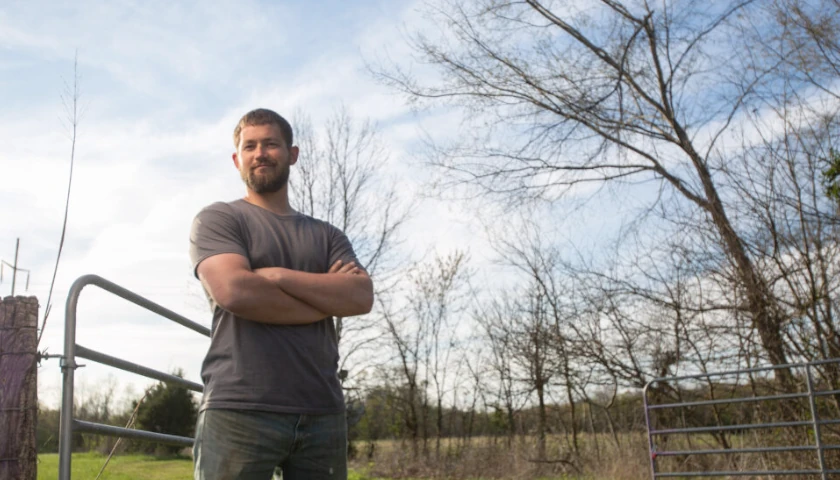After losing an appeal in May, the Tennessee Wildlife Resources Agency (TWRA) decided it will not take its case on the “open fields” doctrine to the Tennessee Supreme Court.
The case began when Terry Rainwaters and Hunter Hollingsworth found hidden cameras on their property, which were placed there by TWRA, according to the Institute for Justice, which took on the case.
The men sued the state agency for placing warrantless spy devices on their property to ensure that they weren’t illegally hunting big game, which TWRA argued was legal based on a Supreme Court ruling from 1924 regarding the “open fields” doctrine.
In that century-old case, the U.S. Supreme Court “held that the Fourth Amendment did not protect ‘open fields’ and that, therefore, police searches in such areas as pastures, wooded areas, open water, and vacant lots need not comply with the requirements of warrants and probable cause,” according to Justia.
After Rainwaters and Hollingsworth (pictured above) won their initial suit, the state appealed. When that appeal was lost in May, Attorney General Jonathan Skrmetti refused to take the case any further.
Due to Tennessee law stating otherwise, Rainwaters’s and Hollingsworth’s attorneys at the Institute for Justice argued that the 1904 Supreme Court ruling did not apply in Tennessee.
“In 1926, two years after the U.S. Supreme Court announced the open-fields doctrine, the Tennessee Supreme Court held that private land deserves more protection,” said Josh Windham, co-director of the Institute for Justice’s Project on the Fourth Amendment. “But for the last century, state game wardens have been ignoring that important decision, roaming Tennesseans’ private land at will. No longer.”
The agency was scolded by an appellate judge who heard the case.
“TWRA’s contention is a disturbing assertion of power on behalf of the government that stands contrary to the foundations of the search protections against arbitrary governmental intrusions in the American legal tradition…,” according to Appellate Judge Jeffrey Usman in issuing his decision in the case.
The appellate court unanimously ruled against TWRA.
“This final victory has been a long time coming,” said Rainwaters through his attorneys. “For too long, TWRA officers have treated my private land like public property. But in Tennessee, our land just means more. It’s part of who we are. And to hear the court say that our land deserves protection from TWRA’s warrantless intrusions makes me proud to be a Tennessean.”
Hollingsworth says that “[f}inding out you were under illegal surveillance on your private property for months is a hard pill to swallow.”
In a statement to NewsChannel 9, TWRA spokeswoman Emily Buck said the agency does not yet understand the parameters of the ruling.
“WRA is currently working with the Attorney General’s office for further clarity on TWRA’s right to inspect hunters,” she said. “The Agency will have new policy and procedures in place by the opening of Dove season in September. TWRA already has a landowner consent process implemented for game wardens to enter private property, and all wardens have received additional search warrant training.”
– – –
Pete D’Abrosca is a reporter at The Tennessee Star and The Star News Network. Follow Pete on X/Twitter.
Photo “Hunter Hollingsworth” by Institute for Justice.





